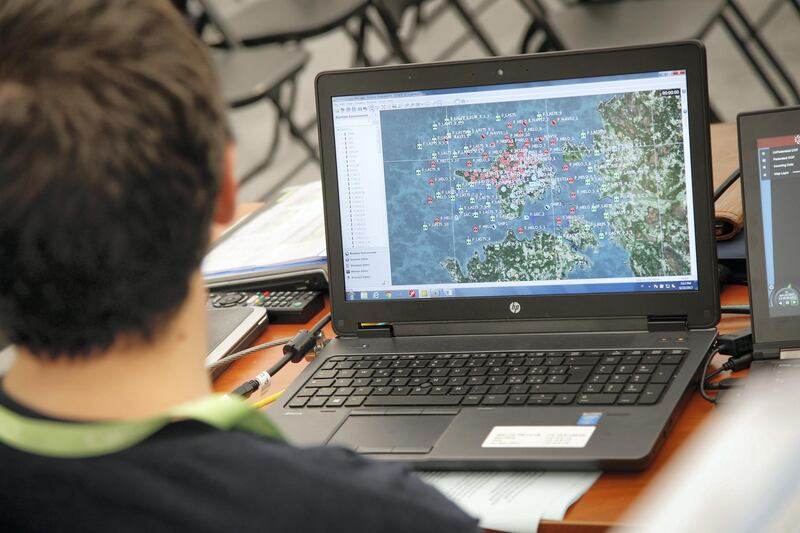Nato is staging cyber war games this week with make-believe hackers launching more than 4,000 attacks on the power grids and air defence systems of a fictional island country.
The drills involving 30 countries are meant to test Nato's defences during a global pandemic that is making the world more dependent on virtual systems.
Hackers targeted vaccine developers during the Covid-19 crisis and the US government was the target of a major cyber attack, which was discovered last year.
Known as “Locked Shields”, the four-day exercise is organised by the Co-operative Cyber Defence Centre of Excellence, a Nato-accredited cyber hub in Estonia.
In the scenario, the fictional North Atlantic nation of Berylia is the subject of a co-ordinated cyber attack on its civilian and military systems.
Nato’s 22 “Blue Teams” are tasked with responding to “severe disruptions” to electric power, military air defence, satellite mission control and water purification in Berylia.
They are taking on a "Red Team" of imaginary villains, who launch a series of attacks which the Estonian centre said are based on real threats.
"Reflecting real world cyber threats, the exercise will address the protection of vital services and critical infrastructure that are fundamental for modern societies to operate," said Carry Kangur, the centre's head of cyber exercises.
“These include critical information infrastructure, power and water supply and national defence systems with [Locked Shields 2021] introducing several new systems with enhanced capabilities.”
In previous years, the organisers gathered in Estonia's capital, Tallinn, but this year they are working from home because of the pandemic.
"The need for such unique collaborations as Locked Shields has become more critical than ever," said centre director, Col Jaak Tarien.
“During the pandemic we have witnessed a growing trend of remote working, dependence on virtual systems and also a rise in the number and scope of cyber attacks.
“This exercise enables participating nations to practise solving cyber incidents in the most complex and intense playground possible.”
The Locked Shields drills began on Tuesday and will continue until Friday.
Nato said that cyber threats to its members are becoming “more frequent, complex, destructive and coercive”.
Late last year, a series of intrusions, blamed on Russian hackers, came to light across the US government.
Also in 2020, tech company Microsoft said it had detected hackers linked to Russia and North Korea targeting companies involved in developing vaccines and treatments against Covid-19.
Other targets of cyber attacks during the pandemic included hospitals in France and Spain and the World Health Organisation.
In addition, the UK’s landmark defence review last month said that Britain had foiled cyber attacks that targeted “vital national infrastructure”.








